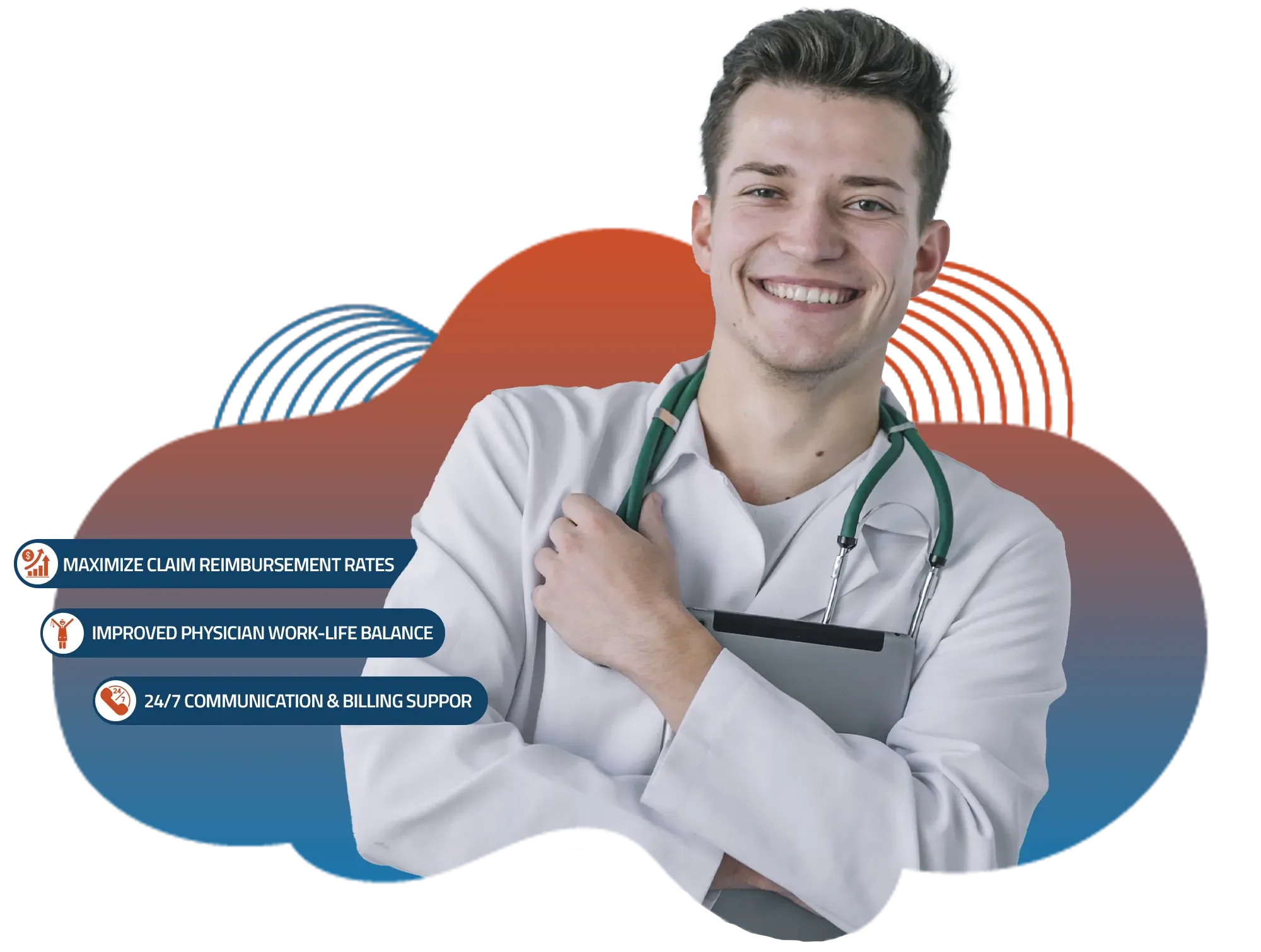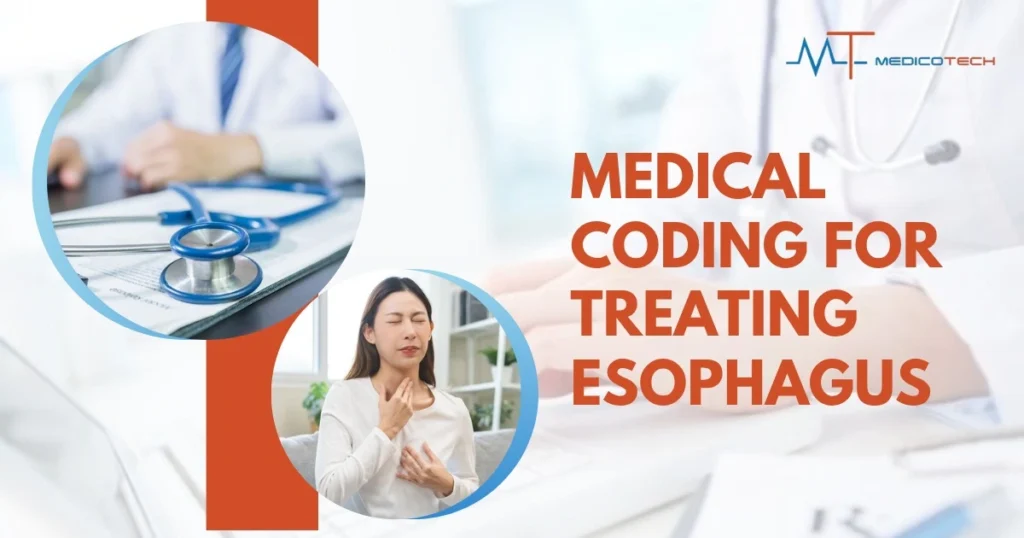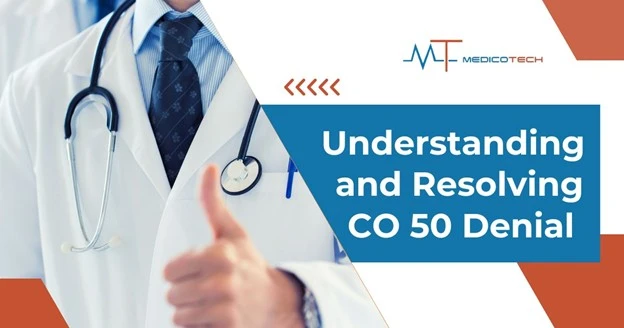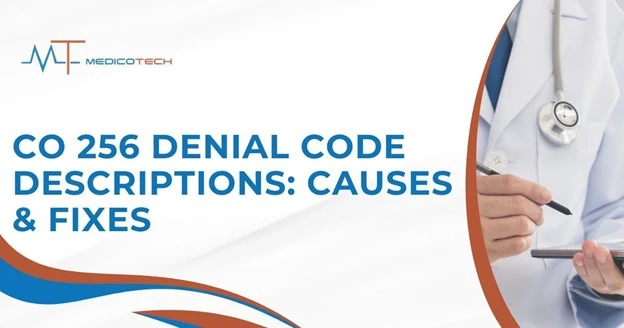Esophagus diseases are also a major concern among most people, and there are several complications that control the proper working of the esophagus. Some of the most common include reflux related to the heartburn, GERD (Gastroesophageal Reflux Disease) and esophageal strictures. Heartburn, which is usually the effect of stomach acid ascending to the esophagus, may result in discomfort and permanent damage in case it is ignored. And GERD is a long lasting disorder, which may result in a chronic heartburn and inflict serious consequences like cancer of the esophagus. On the other hand, esophageal strictures are the constriction of the esophagus owing to scarring or inflammation which may result in difficulty in swallowing.
Medical coding is critical to healthcare providers making proper diagnoses and treaties of these conditions. Proper CPT (Current Procedural Title) codes play an essential role in the correct billing of medical services, which implies the accurate payment of the services provided by the providers and the appropriate recording of the relevant processes. Mis coding may result in refused claims, payment delays, and even compliance, and thus ensuring that medical coding is accurate has become a desirable concern among healthcare practices.
Common Esophageal Conditions Requiring Medical Intervention
Several esophageal conditions require medical intervention due to their potential to cause significant discomfort, complications, or long term damage.
GERD (Gastroesophageal Reflux Disease)
A common condition where stomach acid regularly flows back into the esophagus, causing irritation. Over time, untreated GERD can lead to serious complications like ulcers, narrowing of the esophagus, or even cancer.
Esophageal Strictures
These are narrowings of the esophagus, often due to chronic acid reflux, scarring from surgery, or certain medical treatments like radiation. This can result in difficulty swallowing and pain.
Hiatal Hernia
This occurs when part of the stomach pushes up through the diaphragm into the chest. It is a common cause of GERD and requires specialized treatments.
Eosinophilic Esophagitis
A chronic immune system disease where eosinophils (a type of white blood cell) accumulate in the esophagus, often due to allergies or food reactions, leading to swallowing difficulties.
Each of these conditions requires specialized medical attention, with varying treatment approaches depending on the severity and underlying cause. Gastroenterologists and other specialists rely on accurate medical coding to diagnose and treat these conditions, ensuring that they can provide the right care and that the procedures are billed correctly for reimbursement.
Important Medical Procedures and CPT Codes of Esophagus Treatment
When treating esophageal conditions, healthcare providers often turn to various endoscopic procedures to diagnose and manage symptoms effectively. Here are some of the key procedures and their associated CPT codes:
Esophagoscopy (CPT 43200)
This procedure involves the use of a flexible endoscope to examine the esophagus. It’s often used for diagnostic purposes, such as identifying the cause of heartburn or GERD, or to collect tissue samples via brushing or washing for further pathological analysis.
Esophagogastroduodenoscopy (EGD) (CPT 43235)
An advanced procedure used to examine the esophagus, stomach, and duodenum. It allows for diagnostic imaging as well as therapeutic interventions, such as biopsy collection or dilation. EGD is commonly used to evaluate and treat GERD, esophageal strictures, and cancer.
Dilation Procedures (CPT 43245)
Used to treat esophageal strictures, dilation procedures involve the insertion of a balloon or dilator to widen the narrowed part of the esophagus. These are vital in treating conditions like achalasia or strictures caused by GERD.
Each of these procedures plays an important role in diagnosing and treating esophageal conditions, with the corresponding CPT codes ensuring that the services are accurately documented and billed for reimbursement.
ICD 10 Codes for Accurate Diagnosis of Esophageal Disorders
Along with CPT codes, accurate diagnosis is essential for proper coding. ICD 10 codes are used to identify specific conditions and justify the need for medical procedures. Some relevant ICD 10 codes for esophageal conditions include:
- R12: Heartburn – Used for patients experiencing occasional or frequent heartburn symptoms.
- K21.00: GERD without esophagitis – For individuals with GERD who do not have esophageal inflammation.
- K22.0: Esophageal obstruction – A broad category for various types of obstructions in the esophagus, including strictures or tumors.
Using the correct ICD 10 codes is essential for ensuring the medical necessity of the procedures performed and for ensuring that claims are processed without delays or denials.
Understanding Modifiers in Esophageal Medical Coding
Modifiers are essential in medical coding, especially when it comes to esophageal procedures. They provide additional information about the procedure performed and help ensure that the medical service is reimbursed correctly. Here are some key modifiers used in esophageal medical coding:
Modifier 22 (Increased Procedural Services)
This modifier is used when the esophageal procedure is more complex or time consuming than usual. It can be applied when additional work is required during procedures like EGD or esophageal dilation.
Modifier 59 (Distinct Procedural Service)
Modifier 59 is Used to indicate that a specific procedure, such as biopsy or esophageal dilation, is separate from other procedures performed during the same session, ensuring accurate billing for each service.
Modifier XS (Separate Structure):
Applied when the procedure performed on the esophagus is distinct from other services performed on different anatomical structures, such as during a simultaneous esophagoscopy and colonoscopy.
These modifiers help ensure accurate billing and prevent issues like claim denials, ensuring that healthcare providers are compensated fairly for the services provided.
Best Practices for Billing Esophageal Treatments and Avoiding Denials
Accurate billing for esophageal treatments is crucial for maintaining a smooth practice operation and ensuring timely reimbursements. Below are key guidelines for avoiding common billing mistakes and improving accuracy:
Proper Documentation of the Procedure
Every procedure should be thoroughly documented, including the specific services performed, the patient’s medical history, and any tests or treatments provided during the session. Clear and complete records help justify the necessity of the procedure and ensure correct coding.
Use of the Correct CPT and ICD 10 Codes
It is essential to apply the most accurate CPT codes (e.g., 43200 for esophagoscopy) and ICD 10 codes (e.g., R12 for heartburn or K21.00 for GERD) to properly represent the diagnosis and procedure performed. Using incorrect or outdated codes can result in claim denials or payment delays.
Tips for Avoiding Common Billing Mistakes
- Double check for incorrect code pairings: Ensure that CPT codes align with the ICD 10 codes used.
- Avoid bundling mistakes: Some procedures may be incorrectly bundled together, especially when multiple procedures are performed in one session.
- Ensure modifier accuracy: Applying the right modifier, such as Modifier 22 (for increased services) or Modifier 59 (for distinct services), can prevent issues with reimbursement.
Following these best practices ensures accurate billing and minimizes the risk of claim denials.
Reimbursement Insights for Esophageal Procedures
Understanding reimbursement rates and the factors influencing them is essential for optimizing your practice’s revenue cycle. Here’s a breakdown of how Medicare reimbursement works for esophageal treatments:
Overview of Medicare Reimbursement Rates for Esophageal Treatments
Reimbursement rates vary depending on the procedure and the setting in which it is performed. For instance, EGD (CPT 43235) performed in a hospital outpatient setting typically receives a higher reimbursement than the same procedure in an office setting.
Geographic Adjustments and Sequestration
Medicare reimbursement rates are subject to geographic adjustments, meaning they can vary depending on the location of the practice. Sequestration (mandatory across the board reductions in spending) also affects reimbursements, potentially reducing the amount practices receive for procedures like EGD and esophagoscopy.
Strategies to Optimize the Reimbursement Process
Stay informed on updated codes: New CPT and ICD 10 codes can influence reimbursement rates and should be tracked for proper billing.
Maximize modifier use: Correctly applying modifiers (e.g., Modifier 22 for complex procedures) ensures that additional work is compensated appropriately.
Understand payer policies: Different insurance providers, including Medicare, may have specific requirements for billing esophageal procedures. Familiarize yourself with these policies to prevent errors in billing and payment delays.
By staying aware of these factors and optimizing your practice’s billing process, you can improve your reimbursement rates and reduce the risk of financial losses.
Overcoming Common Challenges in Esophageal Treatment Coding
Coding for esophageal treatments can be complicated due to the variety of procedures and the need for precise documentation. Here are some challenges commonly faced by coders in gastroenterology:
Complex Coding for Multiple Procedures
When multiple procedures are performed during a single visit (e.g., EGD and esophageal dilation), accurately coding for each procedure without over or under reporting can be tricky. The use of modifiers, such as Modifier 51 for multiple procedures or Modifier 59 for distinct services, helps ensure proper billing.
Common Causes of Claim Denials:
Some common causes of denied claims include:
- Incorrect CPT or ICD 10 codes that don’t match the services rendered.
- Lack of proper documentation to support medical necessity.
- Bundling errors where multiple procedures are incorrectly combined.
Solutions for Overcoming These Challenges:
- Ensure that all diagnostic and therapeutic procedures are documented with their specific details.
- Review payer specific guidelines for billing esophageal procedures to ensure compliance.
- Use coding tools or outsource to coding specialists who are familiar with gastroenterology procedures to reduce errors.
By proactively addressing these challenges, your practice can avoid common coding mistakes and ensure smoother operations.
Importance of Accurate Documentation in Esophageal Coding
Accurate documentation is the cornerstone of correct medical coding and plays a significant role in preventing errors and ensuring compliance:
Role of Documentation in Ensuring Accurate Coding
Detailed documentation allows coders to choose the appropriate CPT and ICD 10 codes for esophageal procedures. This includes documenting:
- The specific diagnosis (e.g., GERD or esophageal stricture).
- The procedure performed (e.g., EGD with biopsy).
- Additional services provided (e.g., dilation or stent placement).
How Thorough Patient Records Support Medical Necessity
Comprehensive patient records justify the need for specific treatments. These records include symptoms, test results, and treatment plans, all of which support the medical necessity for procedures like EGD or esophageal dilation.
Accurate documentation ensures that medical coders can match the procedure with the correct codes, reducing the chances of denied claims and improving reimbursement efficiency.
Summary
In conclusion, accurate medical coding plays a vital role in the treatment and management of esophageal conditions. From diagnosing and treating GERD, esophageal strictures, and other disorders, to ensuring proper reimbursement, accurate coding is essential for both healthcare providers and patients.
- Maintaining Compliance: By following the guidelines and using the correct CPT and ICD 10 codes, practices can ensure compliance with regulations, avoid claim denials, and streamline the billing process.
- Improving Efficiency: A well organized coding system not only boosts financial performance but also enhances the efficiency of patient care by ensuring that all necessary procedures are accurately documented and reimbursed.
- Ensuring Proper Reimbursement: Whether dealing with Medicare or other payers, understanding reimbursement rates, modifiers, and coding updates helps optimize your practice’s revenue cycle.
By adhering to best practices and ensuring accurate coding, healthcare providers can maintain smooth operations and deliver high quality care for patients with esophageal conditions.




